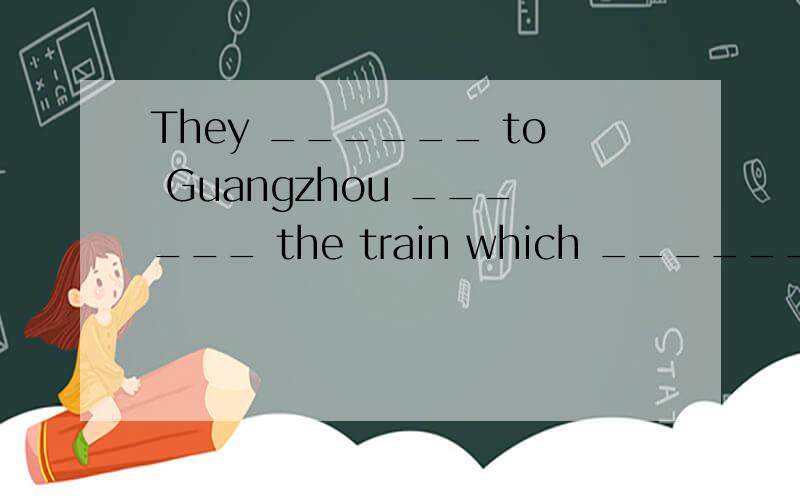They ______ to Guangzhou ______ the train which ______ at 8:00 in the morning.A.will go offThey ______ to Guangzhou ______ the train which ______ at 8:00 in the morning.A.will go off … by… will leaveB.are going to go off … by … is going to le
来源:学生作业帮助网 编辑:作业帮 时间:2024/05/15 00:16:10

They ______ to Guangzhou ______ the train which ______ at 8:00 in the morning.A.will go offThey ______ to Guangzhou ______ the train which ______ at 8:00 in the morning.A.will go off … by… will leaveB.are going to go off … by … is going to le
They ______ to Guangzhou ______ the train which ______ at 8:00 in the morning.A.will go off
They ______ to Guangzhou ______ the train which ______ at 8:00 in the morning.
A.will go off … by… will leave
B.are going to go off … by … is going to leave
C.are going off … on … leaves
D.are going off … in … will leave
此题选C 请问最后一空为何不用will leave ,
我个人认为火车将在早上八点离开
They ______ to Guangzhou ______ the train which ______ at 8:00 in the morning.A.will go offThey ______ to Guangzhou ______ the train which ______ at 8:00 in the morning.A.will go off … by… will leaveB.are going to go off … by … is going to le
我记得以前我们英语老师给我们这么解释的:
有时刻表这类单词出现的时候,就算是将来时,单数名词后的动词都只能用V.+s/es.因为火车发车时间已经固定了的,不能说今天是8:00,到了明天就变成另一个时间了吧?对既定的时间和事实,就只能用leaves.
后面一个空只能用一般现在时。
语法规则:一般现在时表示将来。
如果所叙述的事情为时间表或时刻表的安排,则可以用一般现在时表示将来。
另外,在一些状语从句中也经常用一般现在时表示将来,如
If he comes, I will tell him about it.
I won't le...
全部展开
后面一个空只能用一般现在时。
语法规则:一般现在时表示将来。
如果所叙述的事情为时间表或时刻表的安排,则可以用一般现在时表示将来。
另外,在一些状语从句中也经常用一般现在时表示将来,如
If he comes, I will tell him about it.
I won't leave unless my father comes.
收起
be going 表将来
on the train 表交通方式
leaves 表一般时 火车时刻基本是固定的